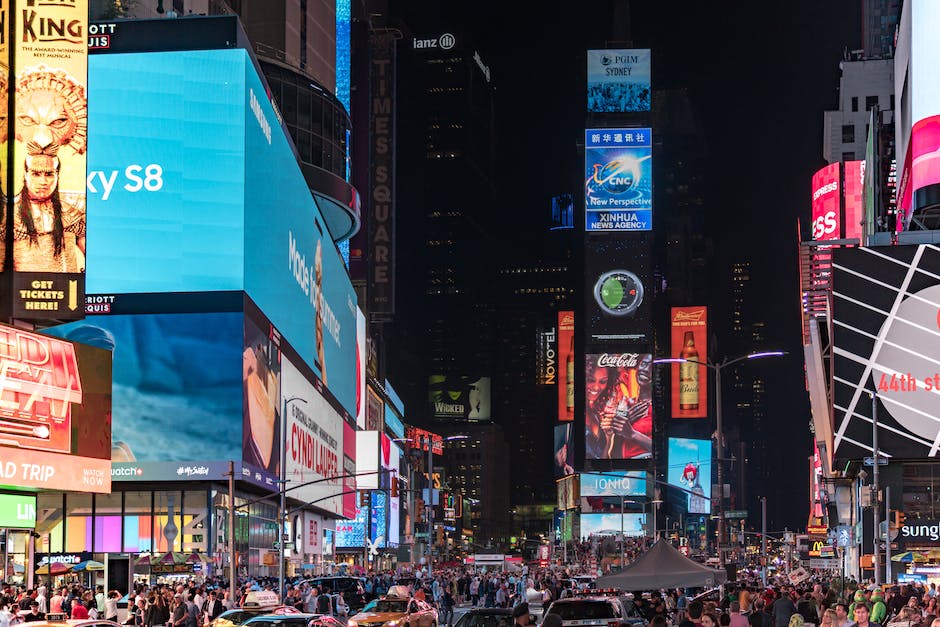Changing how businesses market themselves is an ever-evolving process that requires constant review and revamping to stay relevant. Technology has completely changed the way we interact with each other, and it’s no different when it comes to marketing.
With the availability of almost any kind of technology at your disposal, digital marketing is more diverse than ever. Gone are the days when you had to have expensive software or experienced professionals to create solid campaigns.
Any device connected to the internet can now function as a tool to promote a business, launch a new product, gather feedback, or all three. This article will go into detail about some of the most important things hospitality and tourism management departments should know about digital marketing for their organization.
We’ll discuss what types of digital marketing exist, how they work, and which one fits best with your department.
Examples of digital marketing strategies in hospitality and tourism management
A lot of business owners get stuck in their ways when it comes to how they market and promote their establishments. They do things like posting pictures of food or advertisements for a hotel room online, but nothing more than that.
This is not a good way to advertise your company. You should be trying new tactics and strategies to spread your brand name.
It’s time to look into some different types of marketing you can use to increase awareness of your organization. Some of these are more traditional forms of advertising, such as newspaper ads, but there are others that are much newer.
Identify the target market

Targeting your hospitality marketing strategies is more than just having a cool banner or website. You want to make sure that you are targeting the right audience, and then engaging with them!
As we discussed before, staying relevant is an important part of any tourism industry. The same goes for digital tourism marketing strategies. If a restaurant’s main aim was to gain popularity, it would put up a less professional looking site full of flashy pictures and advertisements.
They might even use slang or casual language instead of using proper grammar and vocabulary. This style does not appeal to anyone beyond their initial target audience, and thus, they fail to connect.
So how do you know if your business is reaching its potential? Try creating interactive content such as blogs, tweets, and/or videos. Technology has made this possible by allowing people to upload and share online material quickly and easily.
By adding some content to our own sites and sharing it, we can increase exposure for ourselves and our companies. Influencers also use their social media accounts to promote brands and businesses so by interacting with them, you get mentioned for free.
This article will talk about some ways to implement these types of campaigns into your hotel’s digital marketing strategy.
Creating a website

A hospitality or tourism business’s website is an integral part of their digital marketing strategy. This means it is important to make sure that it features attractive, engaging content that attracts people to come back to interact with it.
Your hotel’s website should feature lots of interesting information about your property and area. It can also include things like coupons for local restaurants, events at the hotel, and even car rental discounts.
By including these types of resources, you are helping to promote the community around yours and creating new opportunities for revenue and exposure.
That said, not every hotel has the budget to invest heavily into developing their own unique online presence. Fortunately, there are many free web hosting services out there where you can put up your own website.
These sites give you space to create and edit your websites, as well as manage all of your online accounts such as Facebook, Twitter, and other platforms directly from the site.
Understanding the goal of the website

As we mentioned before, digital marketing for hospitality and tourism management includes creating an online presence that communicates your organization’s goals.
This can include things like promoting business listings, offering coupons or promo codes, and establishing social media accounts to promote engagement and awareness.
But it also means making use of different types of content to achieve these goals. This could be text-based articles, videos, eBooks, etc.
Content with interactive features (like quizzes or surveys) are especially effective way to draw in new visitors as they incentivize reading by giving away something you would normally have to pay for.
Linking the website with social media

When you are trying to increase traffic to your site, one of the first things you will need is a strong link to the site. This can be done through setting up an online store, creating a page on Facebook or Google+, or using their services to promote your site.
But what kind of service does yours use? There are many websites that cater to business owners and marketing professionals like us to find the best match for your business.
That’s why we have compiled a list of the top ten free SEO tools for hoteliers and tourism managers! Read on to discover them and evaluate which ones seem most helpful to you.
Identifying your target customers

A hospitality or tourism professional knows his/her field very well, but that doesn’t mean he/she has made an impact on their market!
If you are trying to get more clients, then it is important to identify who your potential client base is. This can be done through direct outreach, indirect means such as social media, word of mouth, etc., or by doing some research.
By analyzing previous presentations, discussions, and testimonials, as well as looking at past performance, you will learn a lot about your targets. You may also need to do additional research to determine whether they are likely to hire you or not- just because someone else offers the same service does not necessarily mean that they will want that service for themselves!
That being said, knowing who your current clients are and getting a sense of what services they need help with helps you figure out who your next ones might be.
Offering a unique experience

Changing how people interact with each other is one of the greatest things you can do as an entrepreneur or business owner. Technology has completely altered the way we live our lives, and marketing is no different.
Business owners have been using digital media to promote their services for years. But what are they promoting exactly? What are their customers receiving from these advertisements?
Many hoteliers and tourism professionals neglect the importance of creating engaging content that appeals to your audience. You should be sharing insights, tips, and information that will inspire your readers to visit your establishment or at least help them plan their next trip!
But what if I told you there’s a simple tool you can use to create incredible content every day? That is why I want to talk about something called Snapchat.
What Is SnapChat?
Snapchat is a smartphone app where you can take pictures and videos (10 seconds long) and then share them with up to 10 “friends” directly through the app.
The friend must also install the app to see the picture/video. The timing is very limited; this feature disappears automatically within 24 hours.
A key difference between Snapchat and most other social media apps is that everything is totally random. There is no profile page for users to check out, which makes it more intimate.
This is important because your friends matter – not just now but forever.
Offering help with marketing your business

A growing number of businesses do not have their own social media accounts, nor do they use digital advertising tools like Instagram or Facebook to promote their products and services.
Many hospitality and tourism management professionals are very focused on helping guests enjoy their stay, so they avoid doing marketing for their company.
But that can be tricky if you really want to grow your career.
Running a restaurant is already tough enough, and most servers don’t have much experience working with marketers outside of serving water and coffee!
Fortunately, we’re here to help. Here are all the sneaky ways we as professional marketers manage hotel and touristic businesses for our clients.



Average Rating